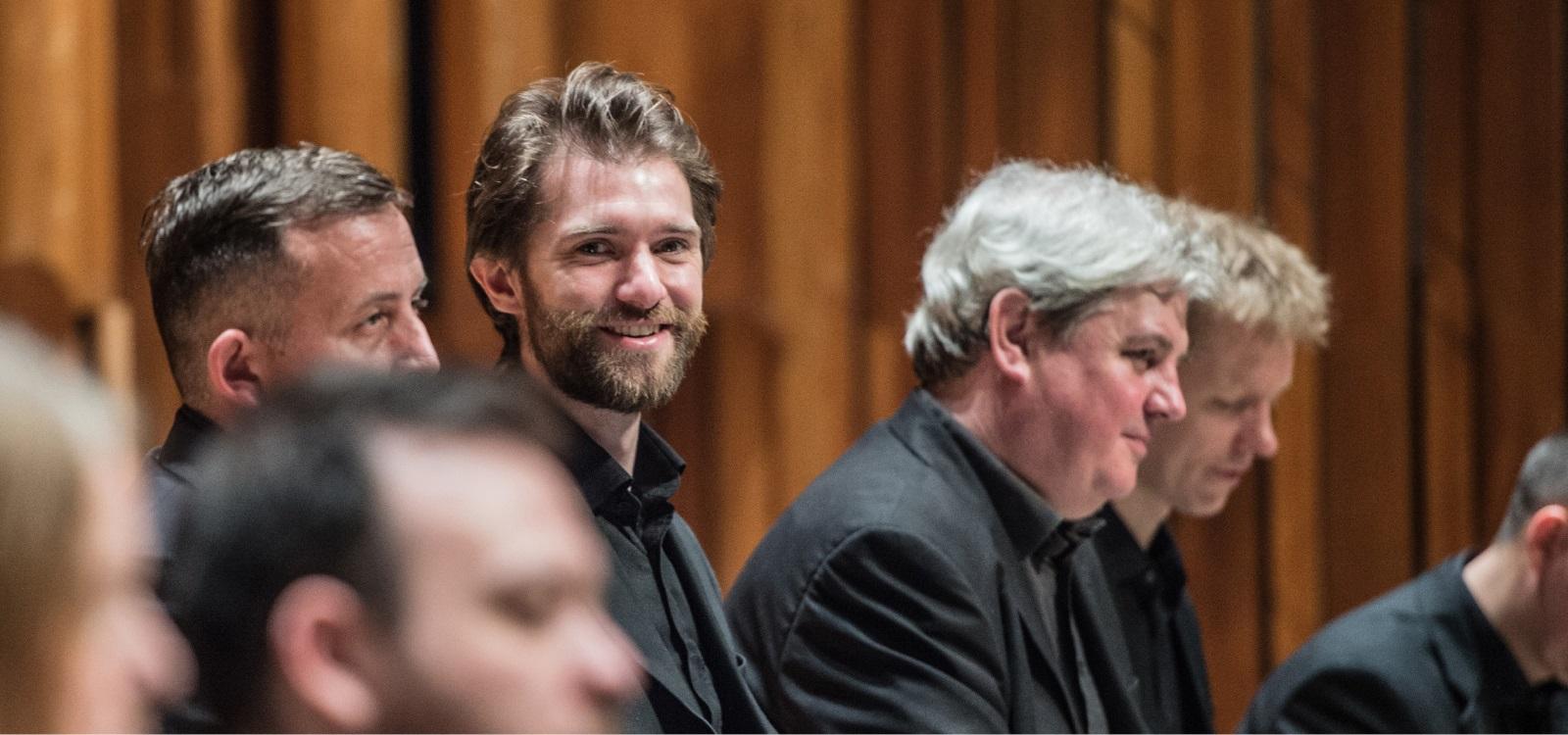Saturday 26 March 2016
West Road Concert Hall, Cambridge

West Road Concert Hall
Buy Tickets
Tickets are not on sale for this event yet.
Please Note: Due to health reasons conductor Bernard Labadie is unfortunately no longer able to conduct the Academy of Ancient Music (AAM) on 26 March for ‘Lenten and Passiontide cantatas’. AAM Leader Pavlo Beznosiuk will direct the concert in place of Labadie.
Choir of the AAM
Pavlo Beznosiuk – Conductor (formerly Bernard Labadie)
Pavlo Beznosiuk – Conductor (formerly Bernard Labadie)
JS Bach – Cantata No.127 “Herr Jesu Christ, wahr' Mensch und Gott” (1725)
JS Bach – Cantata No.39 “Bricht dem Hungrigen dein Brot” (1726)
JS Bach attrib. – Motet, “Ich lasse dich nicht” (1712/13)
JS Bach – Cantata No.182 “Himmelskönig, sei willkommen” (1714)
Over the course of his lifetime Johann Sebastian Bach composed more than 200 sacred cantatas, a staggering body of work which remains to this day at the very heart of the composer’s most significant and celebrated output.
Writing for congregations in Mühlhausen,Weimar, Köthen and Leipzig between 1707 and 1745, Bach would often complete a new cantata each week for performance (directing from the keyboard) as part of the Sunday liturgy. But while Bach’s cantatas are numerous, they are anything but homogeneous, displaying a remarkable variety of forms and forces.
Over the past 25 years Pavlo Beznosiuk has established a reputation as one of Europe’s most respected baroque violinists, with a busy international career as a soloist, chamber musician, concertmaster and director. He first toured with the AAM in 1985, and since then has appeared frequently as a soloist and director and is currently the AAM’s leader. Alongside his role with the orchestra, Beznosiuk is Musical Director of the Avison Ensemble and teaches baroque violin at the Guildhall School of Music & Drama and at the Royal Academy of Music. Most recently Beznosiuk directed the AAM in a programme of lesser-known, minor-mode works which explored the theme of darkness taking inspiration from Dante Alighieri’s 14th Century poem Divine Comedy and the author’s journey through Inferno (hell).
Event type: